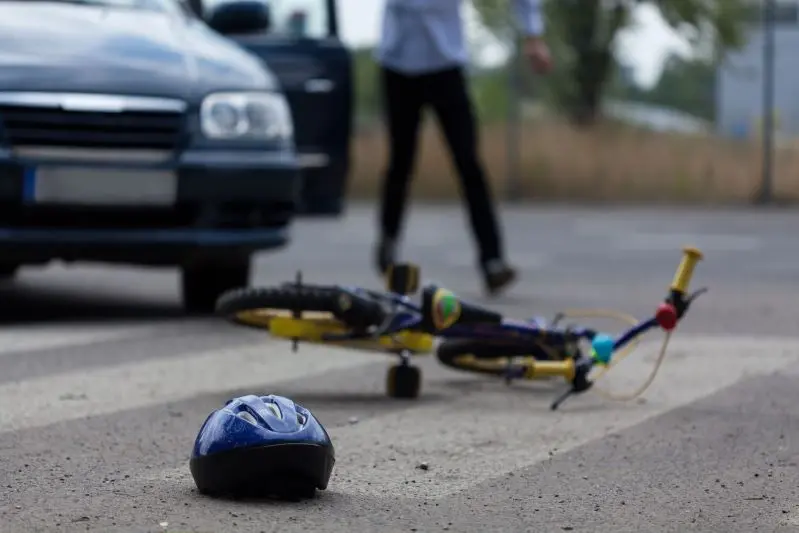Illinois hits-and-run penalties can vary depending on the circumstances surrounding an incident, with Class A misdemeanor penalties applying in cases without injuries and fines of up to $2,500 possible for those caught fleeing scenes of accidents without injuries. Knowing Illinois laws helps drivers navigate potential consequences more safely should such situations arise and take informed actions should any arise.
Under Illinois law, leaving an accident scene without providing information or assistance can be considered an offense, even without injuries to victims involved. Even without injuries sustained from this particular collision occurring on our journeys. Drivers should understand their obligations under Illinois law as well as the potential legal ramifications of failing to stop after being involved in an incident.
Accident victims must recognize that every situation varies and that different variables, including prior offenses and nature of accident can determine its final result. Consulting with legal advisor is recommended when facing charges; they will offer guidance specific to your case.
Legal Implications of Hit and Run Incidents
Hit-and-run incidents may lead to significant legal ramifications; therefore it’s essential that anyone involved understand the classification of these offenses as well as any applicable processes or penalties that follow from such incidents. (Trespassers in Florida face both civil and criminal liability for these violations.). Here’s more info: – Offenses and Penalties
Illinois classifies hit-and-run offenses according to their severity. When drivers cause property damage without injuries but then leave the scene without reporting it immediately after doing so, this offense is classified as Class A misdemeanor and could result in jail sentences as long as one year and fines of $2,500 being assessed against them.
Situations involving serious injuries often escalate to Class 4 felonies, carrying 1- 3 years imprisonment and fines up to $25,000. When hit-and-run causes death, Class 1 felonies carry even harsher punishments – up to 15 year prison sentences are possible depending on which misdemeanor was charged with. Misdemeanors play an instrumental role in shaping legal outcomes; distinguishing between them can determine outcomes in court proceedings.
Understanding Legal Process at its Core
Law enforcement issues a police report when hit-and-run accidents take place, providing essential details that establish facts of the incident and aid prosecution for crimes that result from it. Victims may file insurance claims related to property damage as compensation for their costs associated with property damages caused.
Navigating the legal process can be confusing and intimidating for those involved, which is why seeking advice from an experienced personal injury attorney is important. A legal adviser will help to clarify charges and penalties as well as develop a defense strategy and negotiate with insurance providers. Due to hit-and-run incidents being particularly sensitive cases, being informed on rights and potential consequences is particularly imperative.
Practical Considerations Following an Accident
After being involved in a hit-and-run incident, both victims and perpetrators should know what steps need to be taken following it. Actions taken could influence legal outcomes as well as financial liabilities for each. Here are important things you need to think about after such an event has happened – these considerations must also be kept in mind: “Bacteria Clean-up Following an Incident (Wikipedia).”
Immediate action should be taken after being hit-and-run: moving quickly away to an appropriate safe location as soon as possible and staying near the scene to provide immediate aid, gather evidence and collect vital data about what occurred. If this is impossible or too dangerous, remaining where they were could also provide vital clues as well.
Victims must contact emergency services as quickly as possible after any accident occurs for legal and medical purposes, to provide details and seek medical help if injuries have occurred.
Victims must collect vital information:
Vehicle information. PIN number, license plate number and contact info of witnesses for confirmation will also be included here.
Next, they should document any damage and injury details; taking photographs can be extremely helpful in this respect. In addition, reporting this incident to their insurance provider might help with property or personal injury claims that result from it.
Impact on Victims and Perpetrators
Hit-and-runs can have serious psychological and economic repercussions for victims. Medical bills for bodily injuries could stack up, not to mention property repair bills and lost wages should the injuries prevent the individual from working again.
Fleeing from an accident scene can carry serious repercussions for perpetrators in Illinois; failure to stop after an incident could result in fines, license suspension or imprisonment for those charged – especially if injuries or deaths resulted.
Understanding the implications is paramount and must be handled swiftly and responsibly by everyone concerned.


